EPIC Base Camp: Groundtruthing Last Chance Grade Alternatives
- Sep 12, 2018
- 3 min read
This last weekend EPIC staff and volunteers ventured out into ancient redwood forests and coastal scrublands to explore two of the six alternatives (Alternative A2 and Alternative L), which are being considered for rerouting Highway 101 around the unstable cliff side along Last Chance Grade, a section of Highway 101 that is sliding into the Pacific Ocean.
Alternative A2
On Saturday, Base Campers traversed through the pristine, ancient redwood forest section of Alternative A2, which was located within Del Norte Coast Redwoods State Park. This was one of the most spectacular places any of us had ever experienced in our lifetimes. The vast size of the magnificent old growth trees was humbling, and as we traversed the pristine redwood forest floor, we became emotional with the thought that these ancient trees were numbered and could potentially be sacrificed to build a road. Ancient forests can’t be grown in our lifetimes. Redwoods live to be 2,000 years old. The forest communities they create are irreplaceable and with less than 5% of the original old growth redwoods remaining on the planet, primarily in protected state parks, we need to do everything in our power to prevent them from harm. Bisecting an ancient redwood forest would not only fragment the habitat they create, it would also degrade the remaining forest community that has taken thousands of years to develop.
Based on preliminary geotechnical investigations, Alternative A2 is one of 6 routes that is being considered, which would reroute 3.2 miles of Highway 101, creating an 85 acre construction footprint, including 3 acres of old growth redwood in Del Norte Coast Redwoods State Park. Additionally, this alternative would also include 2 creek crossings, 10 culverts and two bridges. It is EPIC’s position that this alternative, if selected, would result in the largest environmental impact to irreplaceable old growth redwood forest.
Alternative L
On Sunday, we set out to groundtruth Alternative L, which was adjacent to the coastal trail that had sweeping views of the Pacific Ocean. The landscape through this proposed route is made up of mixed coastal shrub, grassland and speckled with some good sized coastal spruce trees, and the northern end of the proposed route contains approximately 1 acre of old growth redwoods, with 2.2 miles of the proposed realignment going through Redwood National Park land. Caltrans hopes that further development of this alternative can eliminate any logging of old growth forests.
History
EPIC is a member of the Last Chance Grade Stakeholder Group, which is made up of regional tribes, agencies, companies and organizations. Last Chance Grade is a 3 mile segment of Highway 101 between Orick and Crescent City beginning just north of Wilson Creek. Road failures and landslides have plagued the roadway for over a decade, and with ongoing sea level rise and coastal erosion, it is just a matter of time before the road will fall into the Pacific Ocean. EPIC recognizes that a safe and reliable alternative route is needed, and has pledged to work with the stakeholder working group to advocate for the least environmentally harmful alternative.
Last Chance Grade Alternative Comparison ChartAlternativeAcres Old Growth AffectedNew Construction Footprint in AcresCost in millionsTravel Time AddedLength within ParkTimelineExisting Allignment00$2M/year00OngoingA11.580$672M1 minute.8 miles4 yearsA2385$240M.8 minute.6 miles3.5 yearsF1.54.5Up to $200M1 minuteN/A7 yearsL147 acres$220M2.2 minutes2.2 miles3.5 yearsX020$150M1.13.5
Groundtruthing
EPIC staff and volunteers went into the field to document the path of proposed road realignment. The photos below were taken and plotted on a georeferenced project map marking the location of the photos with a GPS stamp using the Avenza Maps application. Every affected tree was marked with a small round metal tag that had a number on it to identify the tree. The proposed roadway was identified with wooden stakes and/or white flagging.
EPIC would like to thank Caltrans for their assistance in making Base Camp a reality. Caltrans has been forthright with information, including staking of the potential alternatives prior to our Base Camp, and has provided EPIC will all documents needed to study the alternatives. EPIC is heartened by the open and transparent process under which these alternatives are being developed.


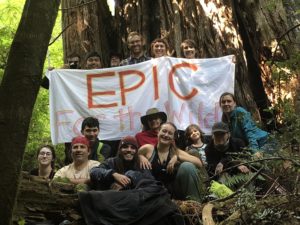

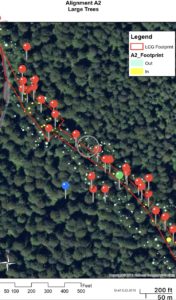
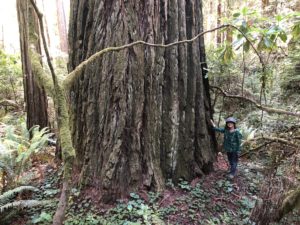

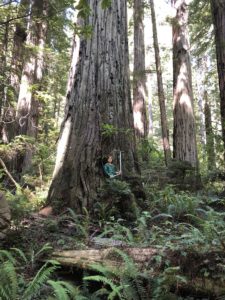

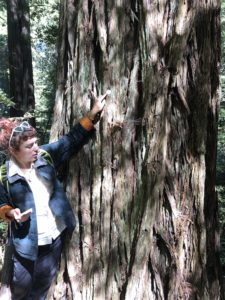
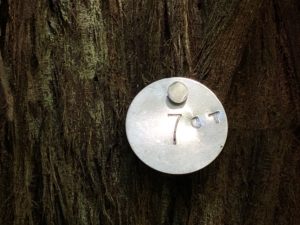

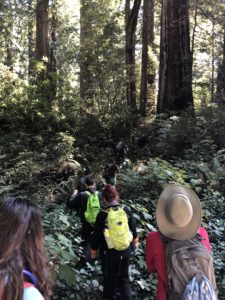

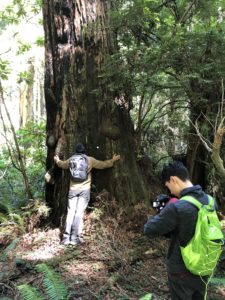

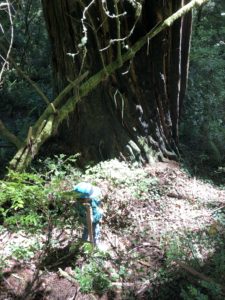

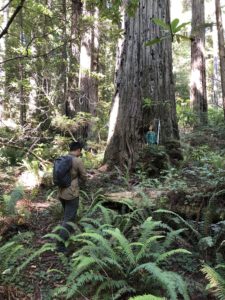
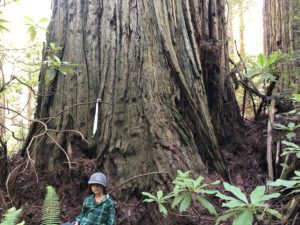
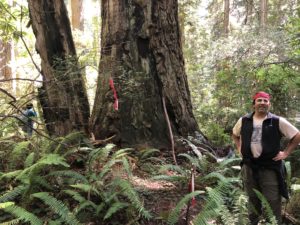
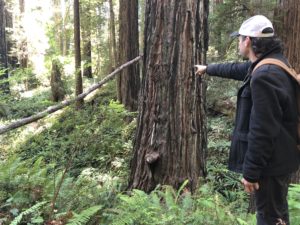

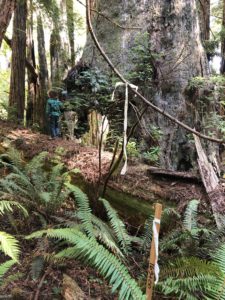

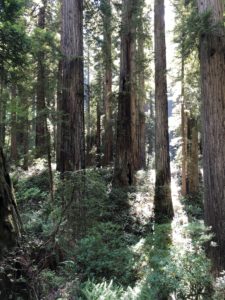

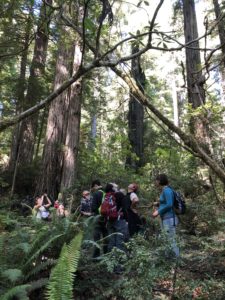

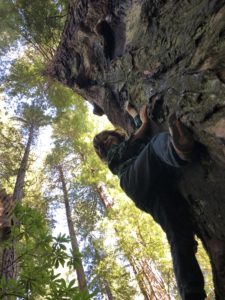

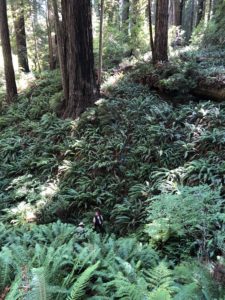

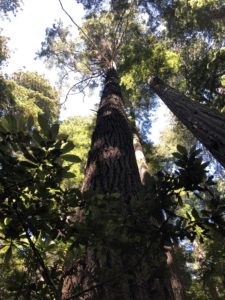
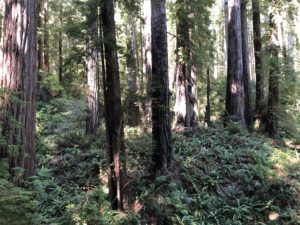
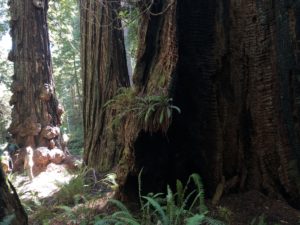
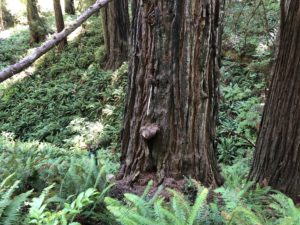
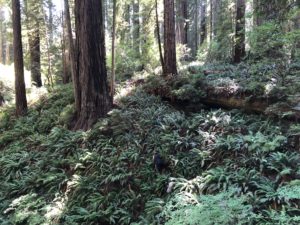
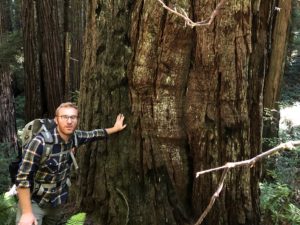

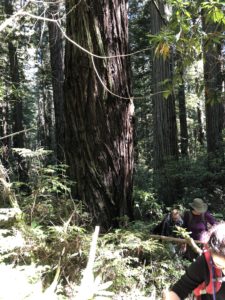
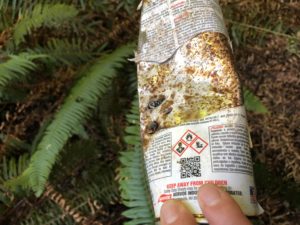


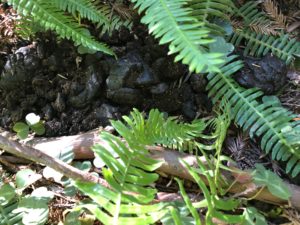
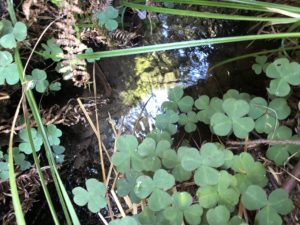

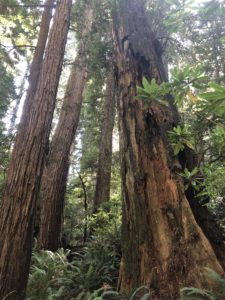

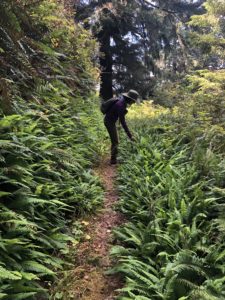
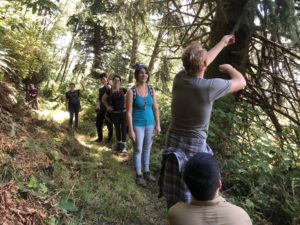
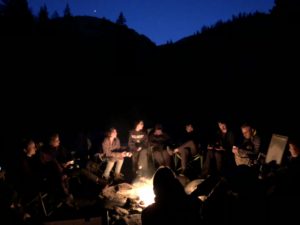
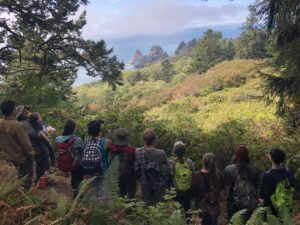
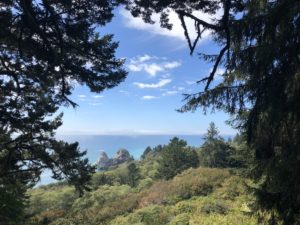
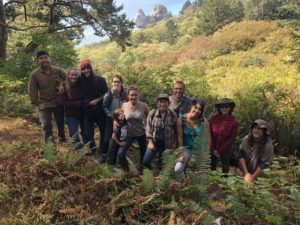
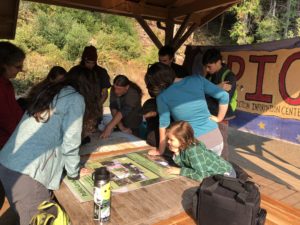
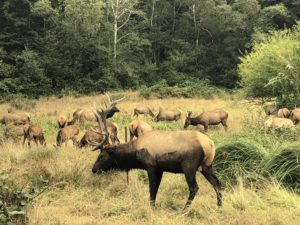
Comments